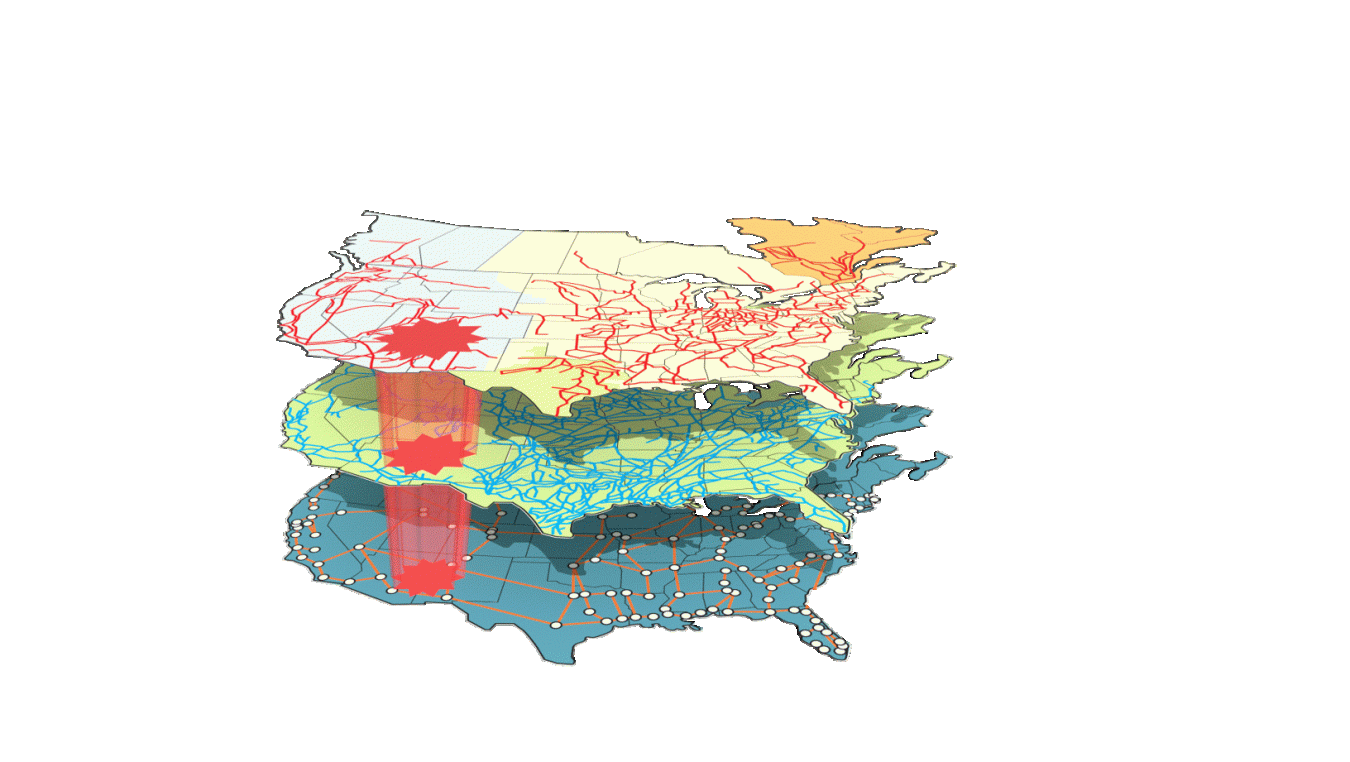
NAERM combines multiple energy and interdependent infrastructure models with system data and realistic threat scenarios to provide actionable information.
NAERM is organized around three major capabilities:
Multi-Infrastructure Planning Modeling
Analyze options to affect energy, improve rapid restoration and recovery, and enable risk-informed planning and coordination to mitigate large-scale energy disruptions (e.g. earthquakes, wildfires).
Data and Analytics
Store and analyze wide-range of data to support analysis. Data layers include modeling databases for bulk electric system, generation, natural gas pipelines; cell, fiber communications; weather forecasts, icing; hospitals, roads. Analytics include graph analysis and machine learning.
Software and Computing Architecture
Enable a complex, multi-component software system focused on security, integration, scalability, and open architecture that leverages existing commercial and open-source software and commercial and government cloud services.
The Technology
NAERM was developed with a collaboration-based architecture to provide analysts with both commercial and open-source state-of-the-art modeling tools. These tools quantitatively assess impacts from current and future risks by integrating numerous government and commercial computer models, databases and sensor streams to present a comprehensive picture of the nation’s energy delivery systems.
The Opportunity
Complex interactions are at the core of today’s rapidly changing energy landscape. These interactions mean greater complexity in energy delivery. Couple this complexity with aging infrastructure and the threat of outages caused by natural disasters, malicious attacks, and climate change and it means vulnerability in the nation’s electricity system, putting millions of Americans at risk who rely on the system’s consistent operation. Complexity and vulnerability in energy delivery necessitates a new generation of modeling tools that can ensure power system reliability. The need for forward-looking modeling tools is further validated by the nation’s shift toward different types of energy and the uncertainty associated with variable renewable generation.
The Solution
By providing cross-sector analysis of the nation’s electrical, natural gas and communications systems, NAERM can rapidly predict energy system interdependencies, consequences, and responses to reduce risk of extreme events at a national scale.
The Team
NAERM leverages the capabilities and know-how of subject matter experts across eight national laboratories and partners at federal agencies, Power Marketing Administrations, and the private sector to deliver NAERM’s national-scale energy modeling capabilities.
Learn what NAERM Can Do For You
Interested in how NAERM can provide you with accurate and timely information to improve energy delivery resilience? Ready to use NAERM? Contact DOE by email at naerm@hq.doe.gov for more information, a presentation, webinar, or in-person meeting.

